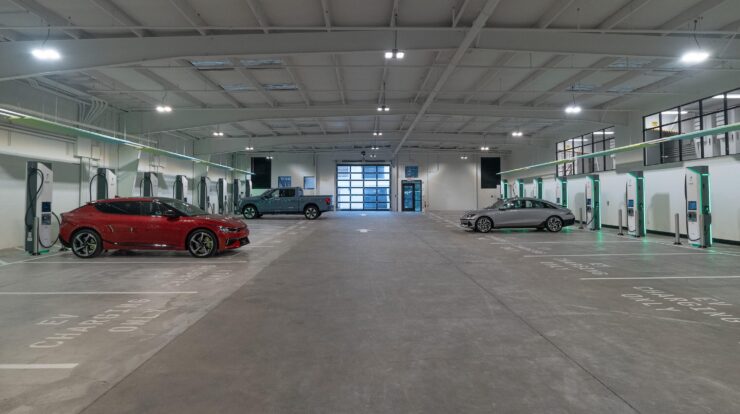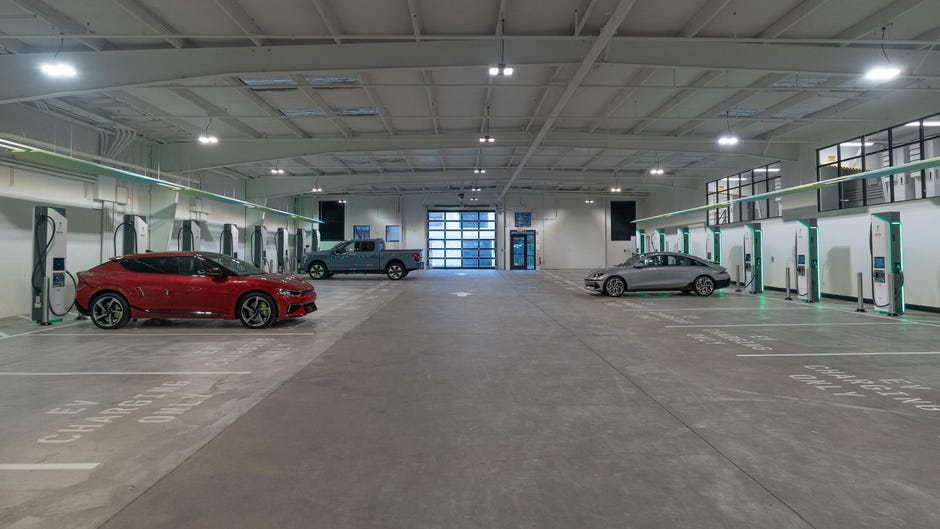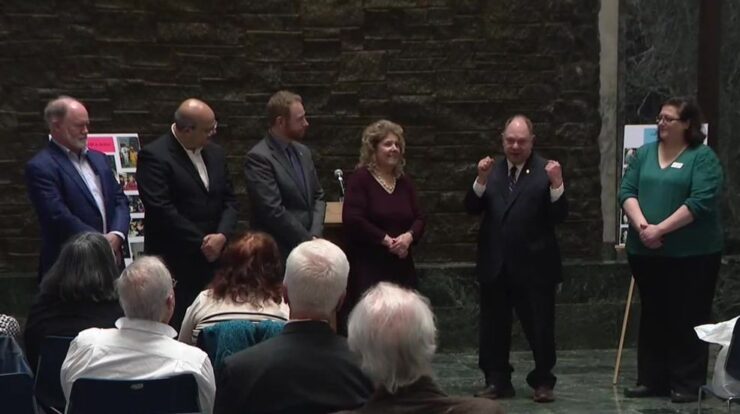

Seventeen states, with leaders like California, Colorado, and Washington, are filing lawsuits against the government regarding billions of dollars allocated for electric vehicle charging stations.
A
lawsuit filed in a Seattle district court
references a $5 billion bipartisan infrastructure initiative from 2021 aimed at constructing charging stations throughout the U.S.
Just as recent as early February
, that funds were anticipated to keep flowing to states for additional station installations. However, since then,
Some of the funding for the program was put on hold.
and experts have said that
Closing government-sponsored electric vehicle charging stations might incur expenses amounting to as much as $1 billion.
.
The lawsuit claims that the Federal Highway Administration, following directives from the White House, is withholding billions of dollars that Congress had approved.
“As of February 6, 2025, the FHWA had made $3.27 billion available for commitment covering fiscal years from 2022 to 2025, with about $1.1 billion allocated specifically for the obligated states mentioned as plaintiffs,” the document states.
Altogether, the FHWA is holding back around $2.74 billion out of the $3.27 million in NEVI Formula Program funds allocated to states for obligations during fiscal years from 2022 to 2025. As a group, the plaintiff states have lost immediate and ongoing access to roughly $1 billion worth of these NEVI Formula Program funds over this four-year period.
The representatives from both the White House and the FHWA did not reply to requests seeking their comments.
The shift towards electric vehicles has been gradual as various manufacturers have introduced enhanced models with greater ranges and additional features over time.
Over 300,000 electric vehicles were sold.
In the U.S. between January and March. These charging stations provide electric vehicle (EV) owners greater flexibility for traveling longer distances, playing a crucial role in this shift. The move towards EVs has also been highlighted as a significant factor driving this change.
combating climate change globally
.
Since becoming president in January, Trump has attempted to halt progress on many Biden-era climate-forward initiatives. As with the EV chargers lawsuit,
States and municipalities are taking initiative to address climate issues.
owing to the absence of national guidance on the matter.
Effects for EV consumers
While 17 states are contesting the government over funding for electric vehicle charging stations, certain figures within the EV sector aren’t holding their breath awaiting the outcome of this legal battle.
BJ Birtwell, who founded and leads the company as its CEO, is associated with the
Electrify Expo
An electric vehicle (EV) event occurring across eight cities stated that consumers will embrace EVs based on their inherent benefits rather than due to governmental incentives.
According to Birtwell, “What we’ve observed at Electrify Expo indicates that electric vehicle uptake is not primarily fueled by policies. The upcoming group of purchasers isn’t spurred by governmental benefits or eco-friendly communications. Instead, they’re coming in as EVs have become practical choices for them—offering improved affordability, extended mileage, quicker refueling options, and greater model variety.”
Birtwell stated that he anticipates private corporations might take the initiative in the event that governmental funding is not available.
“We don’t want an industry that waits on federal dollars. We want one that innovates, competes and earns trust by meeting consumers where they are,” he said. “If this pause in NEVI funding prompts the private sector to step up with faster, more customer-friendly solutions, it could benefit EV adoption in the long run.”
One such venture is
Ionna
, a coalition of eight automakers looking to deploy 30,000 DC fast chargers across the US.
Joseph Vellone, CEO of the company
Chargescape
mentioned that based on information from the Department of Energy, approximately 80% of electric vehicle charging occurs
happens at home
, rather than using public charging stations.
As a consequence, power companies and grid managers are paying increasing attention to improving residential EV charging efficiency, as this usually offers greater demand adaptability compared to public charging stations,” stated Vellone. His firm is dedicated to assisting electric vehicle proprietors in scheduling their charging during low-demand periods by offering financial rewards.
He stated that the FHWA funding freeze implies the private sector must intervene to bridge the federal funding shortfall.
Initially released on May 8, 2025 at 1:47 PM Pacific Time.






